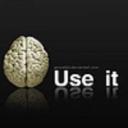Yahoo Answers is shutting down on May 4th, 2021 (Eastern Time) and beginning April 20th, 2021 (Eastern Time) the Yahoo Answers website will be in read-only mode. There will be no changes to other Yahoo properties or services, or your Yahoo account. You can find more information about the Yahoo Answers shutdown and how to download your data on this help page.
Trending News
24 Answers
- PhukyahuLv 66 years agoFavorite Answer
They believe because it's all they know. Believers have been indoctrinated since birth and those that accept god later in life only do so because they fear death and want peace of mind.
- WestsideLv 56 years ago
Read and study with great care and attention the "Bhagavad Gita As it Is" This is a masterpiece in understanding and identifying who The Supreme Personality of Godhead is and much more. It is a dialog between Lord Krishna and His devotee warrior Arjuna. Chapter 2 and onward is a magnificent read. This is a very profound and compelling evidence that God The Supreme Personality is eternally existing.
- ChildoftheKingLv 76 years ago
Just because you don't have compelling evidence, doesn't mean no one else does either.
"But if our gospel is hidden, it is hidden to them that are lost. In whom
the god of this world has blinded the minds of them who believe not, lest
the light of the glorious gospel of Christ, who is the image of God, should shine unto them." (2 Corinthians 4:3,4)
You can't help it because you are blind to any kind of evidence.
- CeisiwrLv 76 years ago
Belief in a god probably goes back to times when people didn't understand how the seasons worked. And when winter came and the crops no longer grew, some sort of sacrifice would have been made to the sun, and then it came back and the crops grew. The people would have associated the sacrifice with the positive outcome, and they wouldn't have dared not do it again because they couldn't risk famine.
In time the sacrifice will have become more sophisticated, and perhaps the idea came about that the sun might be the gift of a god rather than the god itself. This might be a way, or similar to a way, that religion developed.
People would then have assumed that the laws that their ancestors devised came from the god, so the religion would have become even more sophisticated still, providing authority for the laws and fear of a vengeful god if laws were disobeyed, and the same fear would make others stone to death anyone who breached a law to avoid vengeance being visited on the whole community.
There are probably other elements, but it will have gone back to the dawn of civilisation.
And it's become institutionalised, and there are many religions, cults, sects and denominations (including "non-denominational", "not a religion but a personal relationship...", and many others). It's survived because it's become institutionalised, provides a living for some, and is deeply ingrained into traditions and into national, international or intra-national identities; that it's still survived is both puzzling and fascinating.
- How do you think about the answers? You can sign in to vote the answer.
- imacatholic2Lv 76 years ago
Even before I took a look at scientific evidence, my evidence was compelling because
+ People I trust and admire taught me God exists (personal testimony)
+ I have experienced His presence in my life
+ I have seen God's presence in the lives of others
+ I can see God's existence in His Creation
I understand this may not be enough for others so I refer you to modern physics, mathematics, and philosophy.
Belief in God will ultimately be a matter of faith because absolute proof (or disproof) of the supernatural will never be found. However modern Astrophysics has proven the existence of God beyond a reasonable doubt.
++ First Cause ++
Newton's Third Law of Motion states "For every action there is equal and opposite reaction." Every action in the universe was caused by a prior equal and opposite reaction.
If we logically follow each and every action and reaction back to the beginning then logically there has to be a first action without a prior equal and opposite reaction. Modern astrophysicists call this event the Big Bang.
This first action was completely independent of outside forces. This action was God, the un-caused cause, creating the universe. This proof also fulfills the principle of Occam's Razor.
By the way, it was Georges Lemaître (1894–1966), a Belgian Catholic priest and professor of physics and astronomy, who proposed what became known as the Big Bang theory of the origin of the Universe. http://en.wikipedia.org/wiki/Georges_Lema%C3%AEtre
++ Fine Tuning of the Universe ++
A universe in which life has a chance to exist can only happen in where a couple of dozen universal constants coincide, including:
+ Minimum interval of space
+ Minimum unit of time
+ Planck's Constant
+ Maximum velocity
+ Gravitational Attraction Constant
+ Weak Force Coupling Constant
+ Strong Nuclear Force Coupling Constant
+ Rest Mass of a Proton
+ Rest Mass of an Electron
+ Electron or Proton Unit Charge
+ Minimum Mass of the Universe
+ Total Visible Rest Mass
+ Boltzmann's Constant
+ Hubble Constant
+ Cosmological Constant
+ Cosmic Proton/Photon Ratio
+ Permittivity of Free Space
+ Electromagnetic Fine-Structure Constant
+ Weak Fine-Structure Constant
+ Gravitational Fine-Structure Constant
A couple of percent difference in any one of these constants would make the universe completely uninhabitable. Roger Penrose, a peer of Hawking, calculated that the chance of a universe capable of supporting life as we know it as one part in 10 raised to the power of 10 raised to the power of 123.
This fine tuning of the universe, while not an absolute proof of God, can be used to help prove the existence of God beyond a reasonable doubt (which is my claim).
====
For credible scientific and factually reliable evidence for the existance of God see the Magi's God Wiki: "Why Believe in God?" http://magisgodwiki.org/index.php/Why_Believe_in_G...
I also suggest you read Robert Spitzer's book "New Proofs for the Existence of God: Contributions of Contemporary Physics and Philosophy"
With love in Christ.
- DiogenesLv 76 years ago
"...why would anyone believe it?"
Because it's too easy to erroneously pretend that subjective mental experiences are the basis of reality -- which is exactly what fourth century Roman Catholic Scholasticism was intended to communicate.
It took until the seventeenth century* for humanity to finally escape Catholicism's intellectual tyranny and learn to distinguish between subjective mental experiences and objective physical reality.
Source(s): * "Discourse on Method." Rene Descartes, 1641 -- the first explanation of the distinction between subjective mental experiences and objective physical reality. - ?Lv 76 years ago
I cannot speak for all, but I believe in God because I find the evidence does make a compelling case. At the same time, I have no problem acknowledging that that is my opinion and others may have a different opinion.
What you and quite of number of atheists don't seem to understand is your opinion about any evidence is just that - your opinion.
- Anonymous6 years ago
because Atheism isnt true (therefore God exists)
we know Atheism isn't true because something can't come from nothing
order never comes from chaos but
disorder always comes from order
life can't arise from non-life
bacteria can't evolve into other life forms

- ?Lv 66 years ago
It's the original multi-level marketing success, with faith being the leverage that those already involve sell, very convincingly.
- 🤔 JayLv 76 years ago
Today, in 2015, we still maintain a core of religious professionals to create a culture of fear and shame that needs a divine cure. This has been going on since the first thunder storm.
These irrational fears seem to hypnotize some people.
Not to worry, non-believers are growing.....
- JohnnyLv 76 years ago
"The more religious you are, the less likely you are to be intelligent, a new scientific study has found.
According to researchers, Christians - particularly fundamentalists who believe the Bible is God's word - have a lower IQ than those who are less religious.
A possible reason behind the finding was a tendency for more intelligent people to challenge religious claims, said one of the researchers, New Zealand psychologist Professor Tim Bates.
"If you believe in religion, you haven't really questioned things," he said. "Brighter people were less likely to feel that religion plays a dominant role in their life."






